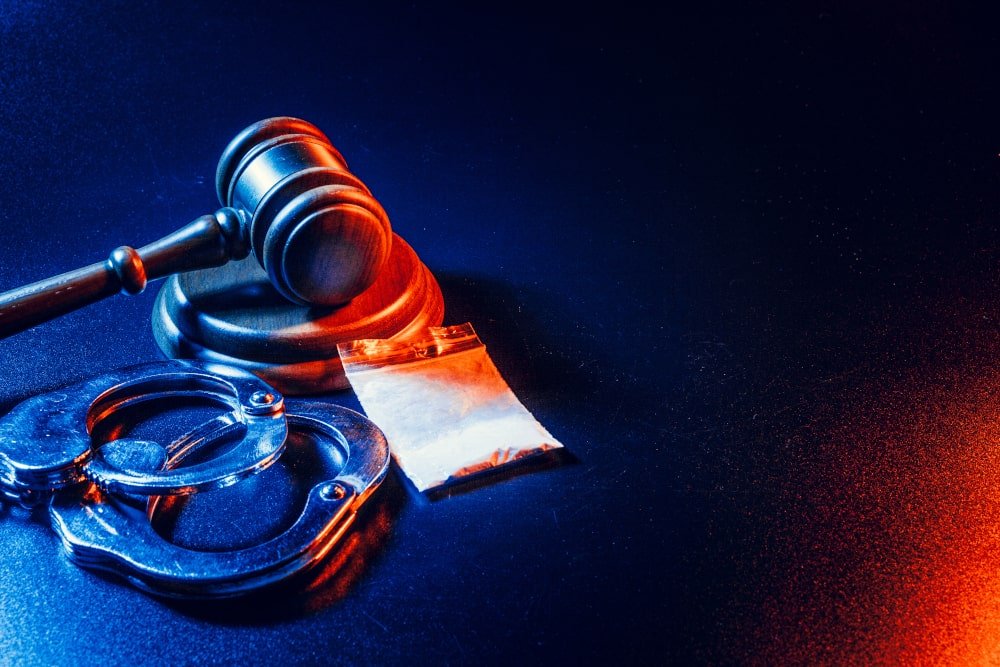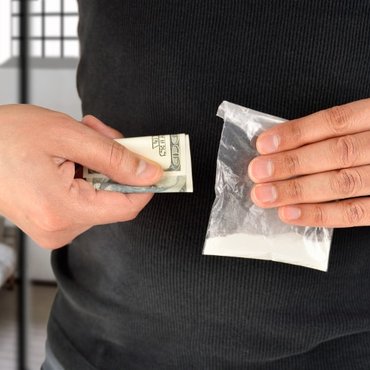Drug-related arrests in Canada are so commonplace that police in 2021 made an average of 82 arrests per day across the country, according to data compiled by the latest Statistics Canada
incident-based crime reporting
. This adds up to almost 30,000 per year, with Ontario police responsible for nearly half of them.
Given the severe penalties Canadian courts can impose on defendants convicted of drug charges, you do not want to join the ranks of these statistics. But if you are arrested for drugs, you should know how a criminal defence drug lawyer can help you out.
With more than three decades of experience defending Toronto area clients against drug charges, the criminal defence
drug lawyers
of Mass Tsang LLP are highly adept at strategizing effective defences against drug-related charges. Read on to learn more about Canada’s drug laws and how a criminal defence drug lawyer can help you beat drug-related charges.
Drug Crimes Under Canadian Law
Instead of Canada’s Criminal Code, the
Controlled Drugs and Substances Act
(CDSA) regulates drug-related laws and prohibits possessing, trafficking, importing, exporting, and producing 100s of different drugs and substances listed by the Act. It classifies listed drugs and substances according to their perceived threat to the public under six different “Schedules.” The most dangerous drugs, such as cocaine, methamphetamine, fentanyl, heroin, and many other opioids, are classified under Schedule I, hallucinogens tend to be listed under Schedule III, and depressants and anabolic steroids fall under Schedule IV.
The lower the Schedule number, the harsher the potential punishment if convicted. The drug-related activity also has a bearing on penalties. For example, the maximum penalty for possessing a Schedule I drug is a seven-year prison term when charged as an indictable offence, compared to maximum of 18-months imprisonment for a Schedule IV drug. The maximum penalty for
trafficking
, importing, exporting or producing a Schedule I or II drug is life imprisonment, compared to maximum of three-years imprisonment for Schedule IV drugs, when charged as an indictable offence.
Note that judges will consider the drug quantity, as well as any aggravating factors—being near a school, past drug crime convictions, carrying weapons, etc.—when determining penalties.
How a Lawyer Can Help You Fight Drug Charges
If Ontario police arrest you for drug charges, you should contact a competent criminal defence drug lawyer as soon as possible and before you make any statements to police and/or prosecutors. As you may have heard on television shows, “anything you say can be used against you” in court.
If you are facing pre-trial custody, your defence lawyer should first initiate negotiations for your release or refer you to a
bail hearing lawyer
who can advocate for your release during the judicial interim release (bail) process. Getting you released from pre-trial custody is essential because it otherwise impedes your ability to help your lawyer strategize an effective defence.
Because of the variety of drug offences and the wide range of scenarios that can lead to charges, your criminal defence lawyer can turn to many different defences or other legal strategies designed to avoid a conviction or otherwise limit the penalties. The first thing your lawyer will need from you is a complete account of what happened before, during, and after the arrest. Your lawyer will need any relevant documents, texts, emails, cell phone calls, photographs, or other potential evidence, and the contact information of anyone who may be able to support your narrative.
Your lawyer will likely try to negotiate a reasonable settlement if the Crown’s evidence seems weak or flawed or if the charges mark a first-time offence. If your lawyer believes they may be able to negotiate dismissal, reduced charges,
absolute or conditional discharge
, or other favourable outcomes, they may recommend that you enroll in substance abuse counselling or take other actions to support the negotiations.
Defence Strategies at Trial
Absent the ability to negotiate a reasonable settlement, your lawyer will need to raise an effective defence at trial, with defence strategies dependent upon the type of charges and distinct circumstances of the case. To gain a conviction, the Crown must prove beyond a reasonable doubt that you consented to, had knowledge of, or control over the drug(s), and that the drugs were one of the Scheduled controlled substances. Thus, your lawyer might try to raise reasonable doubt by proving that you did not know that the drug was in your possession, that you had no control over the drug, or that you did not know that the drug was a drug. Overall, your lawyer will strive to raise “reasonable doubts” about all of the Crown’s evidence.
Your lawyer may also be able to challenge whether the drug is listed on the CDSA Schedule. In handling the seized substance, the Crown must take specific actions to prove it’s a Scheduled drug. This involves submitting it to a qualified lab for testing and obtaining a certificate attesting that the drug is listed on the CDSA. The prosecutors must submit the certificate as an affidavit to the accused or their lawyer showing the intent to use the results in court. If the Crown fails to submit this to the accused, or it appears to be flawed, your lawyer can challenge it in court. If successful, the testing results cannot be used as crucial evidence needed for conviction.
While researching the details of your case, your lawyer will also closely examine police and prosecutor conduct during their investigation and your arrest to determine whether they violated your Charter Rights. These violations often arise during the search and seizure of drugs, whether with or without a warrant. Police need to follow strict protocols in conducting search and seizures and their failure to act in compliance with the law can make their actions unlawful. Such Charter Rights violations can force the judge to exclude evidence relating to the violation.
Last, if evidence suggests that the police played any role in getting you to instigate the offence, your lawyer might also raise the “
entrapment defence
.” In general, though, criminal defence lawyers only turn to this defence when there is obvious evidence of police misconduct.
Consult with Mass Tsang’s Criminal Defence Drug Lawyers
A conviction on drug-related charges in Ontario might lead to severe penalties and significant disruption to your life. As such, you cannot afford to defend drug charges without the expertise of skilled criminal defence drug lawyers, such as those at Mass Tsang. With decades of success in securing positive outcomes for our Greater Toronto Area clients,
contact us
for a free consultation.






